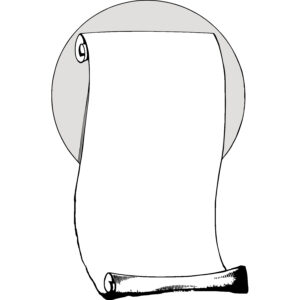
Small businesses face a number of challenges when growing in a competitive marketplace. One of the biggest challenges is limited resources, tighter budgets, fewer employees, and less access to capital compared to larger companies. This means a more delicate balance among marketing, research and development, and other initiatives crucial for growth. Small businesses must also navigate a rapidly changing business environment that requires them to stay up-to-date with technology, consumer trends, and market conditions.
It is for these reasons having a website helps small business owners punch above their weight in the marketplace. People are on their devices checking websites and seeking solutions to problems. Your competitors are out there. Why not you? A site commands attention irrespective of business size (the big companies have sites too) and it gives you a place to make your pitch and supplement your other marketing efforts.
What We'll Cover
Bigger Benefits to Smaller Businesses
We discuss in greater detail the benefits a website provides in this post, but there are several additional reasons why a small business needs a website. We hope you take these into consideration if you are weighing whether to invest in a site of your own.
Establish credibility
Having a professional-looking website can help a small business establish credibility and legitimacy with potential customers. It establishes brand identity and showcases expertise in a particular area. Some industries are very crowded and competitive. This is one more way, and important way, to highlight why you are the right fit for your prospective clients.
Showcase products and services
A website allows a small business to showcase products and services, including photos, descriptions, and prices. A website can feature content such as blog posts, white papers, and videos that demonstrate knowledge and expertise.
Secure a competitive advantage
A website can give small businesses an edge over competitors who may not have a comparable online presence. For example, you may offer a product more suitable to a specific market segment. By highlighting what makes you different (and better), you will resonate better with these visitors and drive conversions.
Better customer service
A website can provide customers with important information such as business hours, contact information, and frequently asked questions. There are a number of options available to offer effective online customer service to attract and retain customers.
Driving sales when “the sale” happens elsewhere
Now more than ever before, companies are starting to exist solely on the platform that they sell on. Think social media, listings sites, or major e-retailers with customizable storefront pages. This is great when starting out and testing the market, since you can catch the attention of visitors already browsing these 3rd party platforms. However it’s important to remember you’re one of hundreds to thousands of people headquartered on the same platform.
If your current main presence online isn’t meeting expectations, it might be time to explore other ways to call attention to your unique offering. Without upending your existing sales process, simply include a link on your listing page to your website for more information. Ideally this would be near where you give your value proposition or business details. Likewise, on your website, you can include a link to your 3rd party platform to make a purchase. If the platform has the capability, embed the means to purchase directly on your site for a more seamless experience.
So, why not?
A website is beneficial in most cases, but in some situations it may be less critical for a small business. Here are a few examples:
- Very small and local businesses: If a business operates solely within a small, local area, it may not need a website to attract customers. Word of mouth or physical advertising may be sufficient for reaching the local customer base.
- Limited budget: Depending on prevailing market conditions or age of the business, it may be more cost-effective to rely on other marketing channels such as social media or local listings for the time being.
- Limited inventory: If you regularly sell out, or have a handful of satisfied customers, you may not need a website. However, you may want to consider expanding!
- Industry limitations: In some industries, having a website may not be as critical as it is in others. For example, a business that provides a specialized service to a limited customer base may not require a website to attract new clients. Some professional services businesses may be satisfied with their current client set, or have enough leads to manage with their current staff.
The bottom line
We believe that most small businesses have something to gain from having a dedicated space online. A website can provide a platform to showcase products and services, establish brand identity, and reach a wider audience. It can provide these benefits without upending your current marketing efforts. Moreover, it can supplement any existing social media presence, as well as marketing collateral by providing a central hub for customers to learn more about your offering.
If you believe your current online presence can be improved, or simply want a new channel to attract customers, we highly recommend adding a website to your expansion plans.





